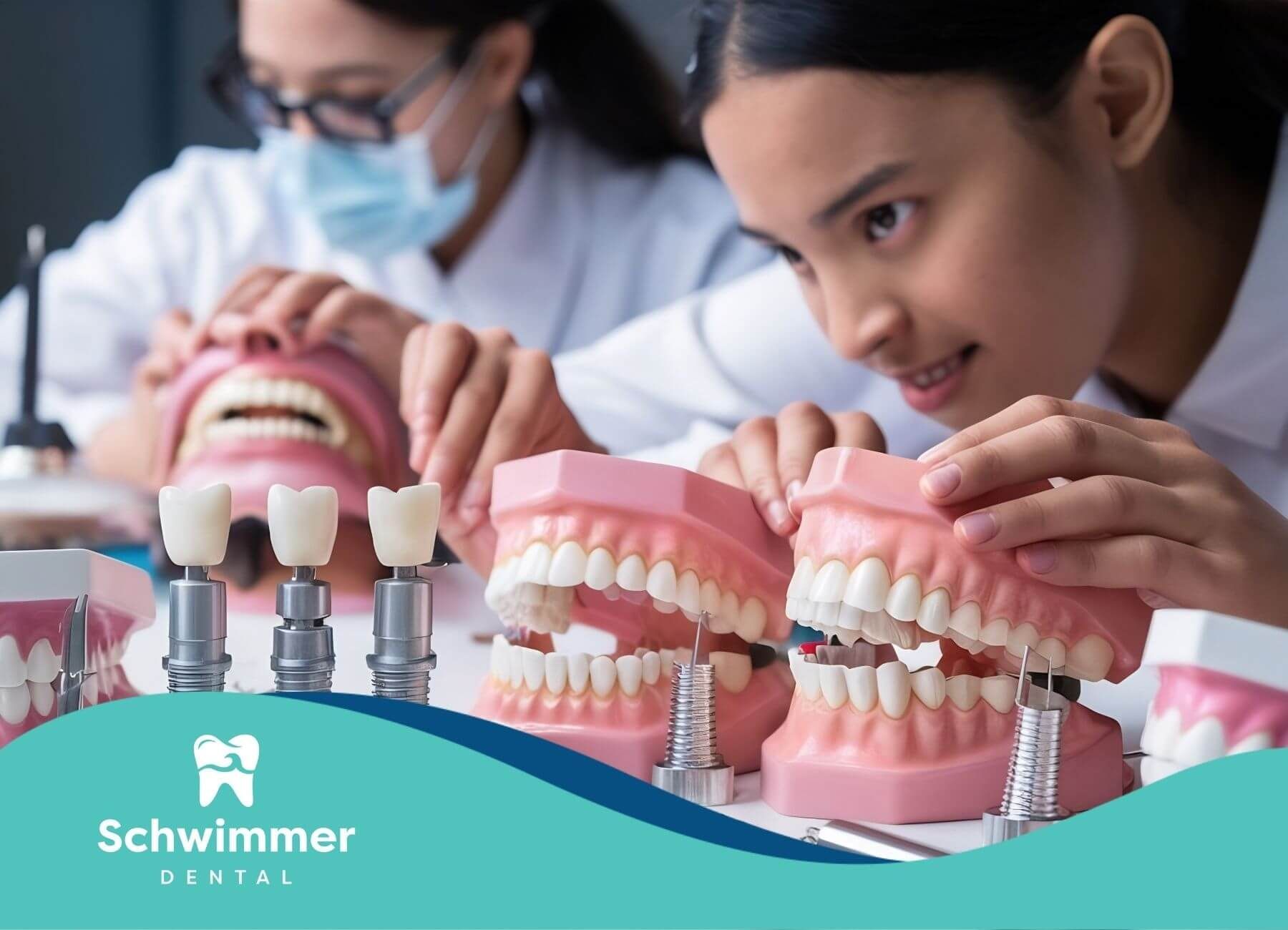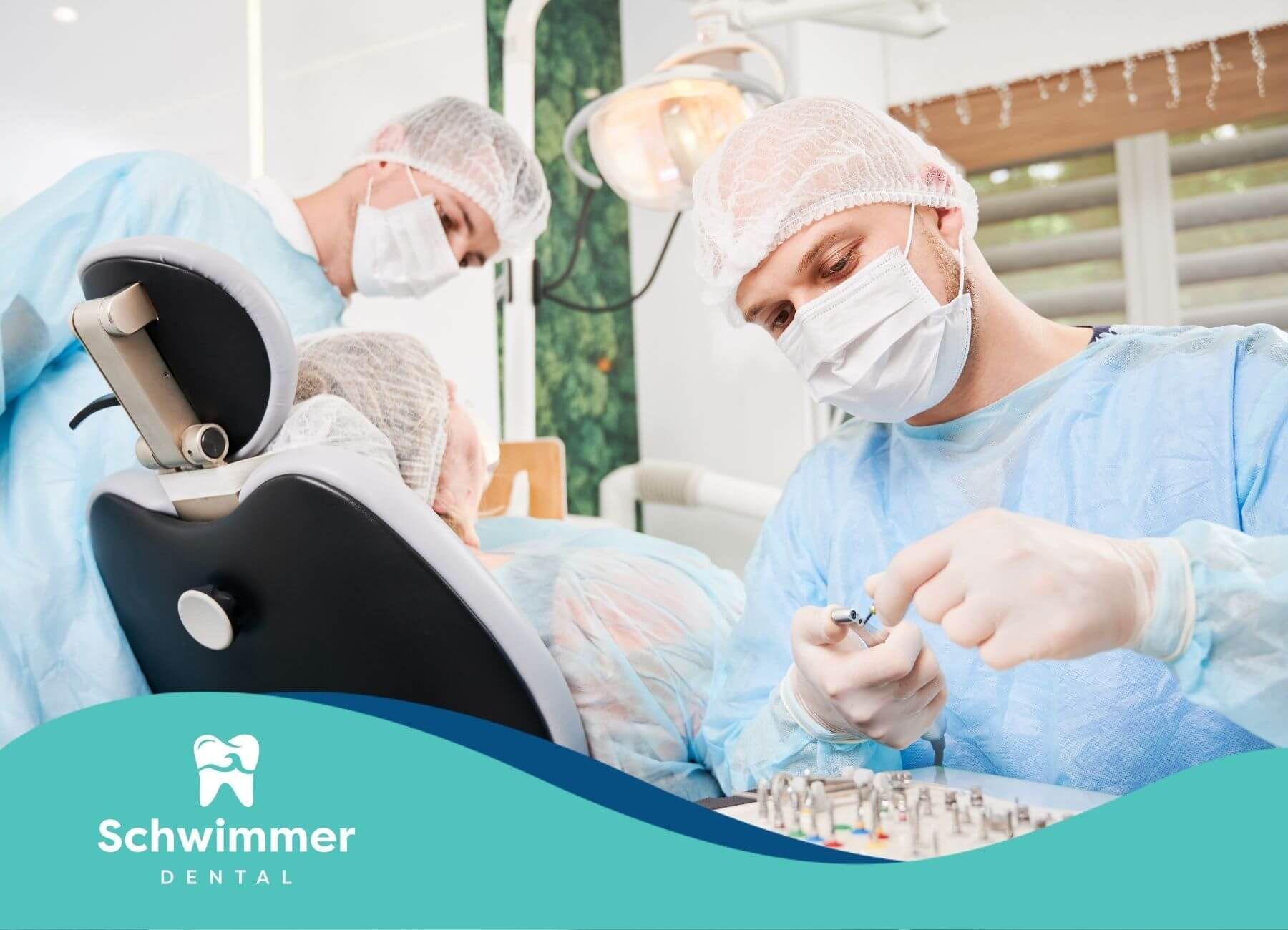What is the Most Important Teeth for Your Oral Health?
Key Highlights
- Each type of tooth in your mouth has a unique function, from cutting and tearing to grinding and crushing food.
- Incisors, located at the front, shape the midline appearance of your smile and help bite into food.
- Canine teeth, characterised by their pointed shape, play a vital role in both tearing tough foods and influencing facial aesthetics.
- Premolars act as transitional teeth, bridging the gap between cutting and grinding food effectively.
- Molars, the strongest teeth situated at the back of your mouth, are key contributors to chewing and digestion.
- Oral health directly affects overall well-being, from proper nutrition absorption to preventing systemic diseases tied to dental issues.
Introduction
Your mouth has four main types of teeth. Each type is important for keeping your oral health good. The teeth include incisors, canines, premolars, and third molars. They help with biting, tearing, grinding, and chewing food. But teeth do more than just help us eat. Healthy teeth keep your facial structure in shape, help you speak clearly, and make your smile look nice. They also help fight off dental issues like cavities and decay. Knowing about the different types of teeth helps you understand how to maintain both good function and appearance in your oral health.
Roles of Different Teeth in Oral Health
Your teeth work together like a
well-functioning team in your mouth. Each type plays an important role in chewing, speaking, and keeping your face balanced. Incisors, canines, premolars, and molars all help break food into smaller pieces. This is important for easy digestion.
Teeth also support oral health. They help balance bite forces, allow for clear speech, and support your cheeks and lips. This helps prevent a sunken look. Together, they form the basis of a healthy and attractive smile.
The Vital Roles of Incisors in Aesthetics and Function
Incisors are the eight front teeth that make up your smile. They help with looks and also have practical uses. These teeth include central and lateral incisors, making them the most visible teeth in your mouth. They help create a balanced and wide smile. As the front teeth, they frame the middle of your face, making your smile look even better.
Incisors are designed to bite food. They have sharp edges that cut through food easily. Located at the front in both the upper and lower jaws, these teeth are important for speaking too. They help with pronouncing sounds like "th" and "f."
Incisors come in as baby teeth first, and then they fall out to make way for permanent adult teeth. Keeping them healthy is very important. It helps them work well and stops problems like decay or discoloration, which can affect your looks and oral health.
Canines: Key Players in Biting and Appearance
Canines are the teeth at the corners of your mouth, right next to the central incisors. They are important for tearing tough foods and help shape your smile. Their pointed shape makes it easy to bite into harder foods, like meat.
Not only do canines help with chewing, but they also affect how your face looks. Healthy and noticeable canines can give your smile a more friendly appearance or a slightly aggressive look. This affects how others see your smile.
Canines guide your bite too. They help keep your teeth in proper alignment with each other. With the longest root of all the teeth, they provide stability. This is good for your oral health and helps support facial muscles. If you neglect your canines, it can lead to bite problems or change the look of your smile.
The Significance of Premolars and Molars
Premolars and molars don’t get much attention since they are located deeper in the mouth. But they play a very important role. Premolars are useful teeth that help between the tearing action of canines and the grinding action of molars.
Molars are found at the back of your mouth. They have large, strong surfaces made for crushing food into small pieces. This is important for digestion. Both premolars and molars help keep your oral health in good shape by reducing the risk of choking. They also help you absorb nutrients by breaking down food effectively.
Premolars: The Versatile Teeth for Chewing and Aesthetics
Premolars, also known as bicuspids, are the teeth found between canines and molars. They serve two purposes with their flat surfaces perfect for crushing food and their cusps that help in tearing. You can find premolars in both the upper and lower jaws. They help chew food better and keep your mouth working well.
These teeth connect the sharp canines to the grinding molars. Their shape, often having two pointed cusps, helps break down food into smaller pieces that are easier to digest, thanks to their single root.
Premolars come in later, usually when kids are around 10 to 12 years old, and they take the place of baby molars. They play an important role in oral health and how your smile looks. They help line up other teeth, which is good for a proper bite and a balanced appearance.
Molars: Essential for Effective Chewing and Overall Digestion
Molars are the largest and strongest teeth found at the back of the upper and lower jaws. They are very important for grinding food well. Their big surfaces and many cusps help crush hard foods, which aids in smooth digestion and nutrient absorption.
These teeth are vital because they provide strength and help process food to prevent choking. Wisdom teeth, also called third molars, come in during early adulthood. They often need to be removed due to crowding issues.
| Feature | Details |
|---|---|
| Largest and Strongest | Designed for grinding tough food. |
| Wisdom Teeth | Third molars that often require removal. |
| Structural Support | Prevent cheeks from collapsing or looking flat. |
By taking care of your molars, you support both your digestion and the shape of your face.
Impact of Teeth on Overall Well-being
Your teeth are important for more than just oral health. Healthy teeth help you absorb the right nutrients, so you can get vital vitamins and minerals from your food. On the other hand, dental issues like cavities can make it hard to chew, which can cause digestion problems.
Additionally, dental health is related to other health issues. Not keeping up with oral hygiene could lead to diseases like heart disease or diabetes. Taking care of your teeth gives you a bright smile and supports your overall health.
How Teeth Influence Nutrition Absorption
Good dental health helps food get broken down well by different types of teeth before it goes to the digestive tract. Incisors slice food into small pieces. Then, premolars and molars grind those pieces into even smaller bits, making digestion easier. This helps the body absorb nutrients like calcium, vitamin D, and protein better.
If teeth do not work well due to decay or other dental issues, food may not digest properly. This can cause nutrient shortages and stomach problems. When there is tooth decay in important areas like molars, it can impact how vitamins are processed.
Keeping all types of teeth healthy supports good nutrient intake, which benefits bone strength and overall immunity.
The Connection between Dental Health and Systemic Diseases
Dental health is important because it can help prevent bigger health issues. For example, when there are bacterial infections in the gums, they can release bad toxins into the blood. This can cause heart problems like endocarditis.
Tooth decay can make chewing hard. This can affect what you eat, which may lead to not getting enough nutrients. This can also make conditions like diabetes worse. If you ignore oral hygiene, it can increase inflammation in diseases like arthritis. This shows how dental health and overall health are connected.
By going to regular dental check-ups, you can catch issues early. This can lower the risk of other health problems and help improve your overall well-being.
Conclusion
In summary, every type of tooth in your mouth is very important. They help keep not only your oral health but also your overall well-being. Incisors are key for your smile. Molars are crucial for good digestion. Knowing what each tooth does can make you appreciate their role even more. If you don’t take care of any part of your teeth, you might face problems in your mouth. This can affect your nutrition and even your whole body's health. Taking care of your dental hygiene is key for a healthier life. If you want personal advice on how to keep your oral health at its best, you can contact us for a free consultation with our dental experts.
Frequently Asked Questions
What is the single most important tooth for oral health?
All teeth are important because they each have their own jobs that are necessary for good oral health. Molars are key for chewing food, while central incisors help with biting and speaking. Every type of tooth plays a role in keeping our dental health balanced and working properly.
How do teeth contribute to overall facial aesthetics?
Teeth really affect how you look, especially your smile. Healthy front teeth, called incisors, help your face look even. The shape of your canine teeth can give you a friendly or a tougher appearance. If you have missing teeth, it can change the structure of your face and may make your cheeks look sunken. Dental implants can give you a nonsurgical facelift effect. They help balance your appearance.
SOURCES:
https://my.clevelandclinic.org/health/body/24655-teeth
https://www.medicalnewstoday.com/articles/326754
https://www.dentalcare.com/en-us/ce-courses/ce500/types-of-teeth-and-their-functions
https://www.colgate.com/en-ph/oral-health/mouth-and-teeth-anatomy/four-different-types-of-teeth-and-mo
re
https://www.mayoclinic.org/healthy-lifestyle/adult-health/in-depth/dental/art-20047475



